Religion and Ethics in Diplomacy from the Perspective of Islam: Diplomacy in Asr-ı Saadet
“One of the most interesting challenges we face in global diplomacy today is the need to fully understand and engage with the enormous influence of a wide range of religious traditions on foreign relations. I often say that if I were back in college today, I would specialize in comparative religions rather than political science. This is because religious actors and institutions play an influential role in every region of the world and on virtually every issue that is central to US foreign policy.
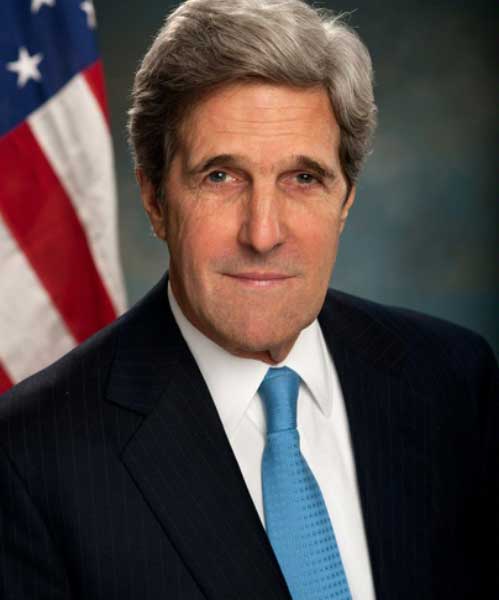
John Kerry, US Secretary of State (2013-2017)
Based on this statement by American diplomat and politician John Kerry, it is seen that religion, religious actors and institutions have been influential in foreign policy in almost every region of the world throughout history. Today, since the discipline of International Relations is considered to be “Western origined”, there is a tendency to explain its relationship with the concept of religion only through Christianity. (Sayın, 2010) The nation-state institution that emerged as a result of the nationalism movement that spread in Europe after the French Revolution of 1789 and affected almost the whole world can be shown as the reason for this tendency. However, this leads to the problem of ignoring the role of the rest of the world in the course of history in the same period of time and past. (Sayın, 2010) In this article, I will focus on the role of the rest of the world in[1] In Asr-ı Saadet, in Jazirat-ul-Arab[2] I will examine the diplomatic strategies and principles adopted and discuss the place and importance of diplomacy in Islam.
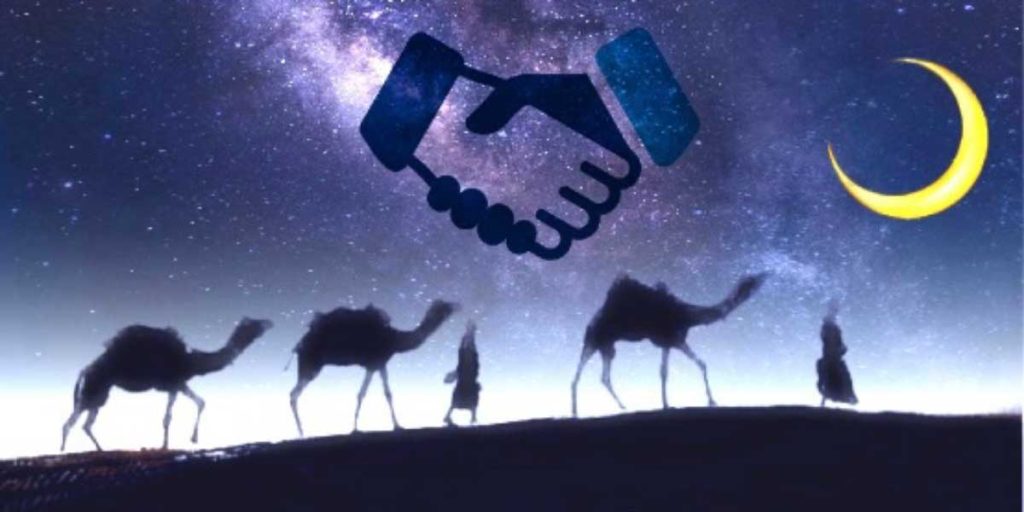
Since the Middle Ages, the religious and ethical aspects of diplomacy have been a matter of debate. The main foci of the debate are whether politics and diplomacy should be isolated from these two elements. In retrospect, Western diplomacy (in general) has been characterized by Machiavellian[3]The idea that foreign policy should be free of religion and morality is dominant. As Nizamettin Çelik (2019) notes in his article, the British Venetian diplomat, attributed to Sir Henry Watton:
“An ambassador is an honest man sent to foreign countries to lie for the interests of his country.”
(p. 81) However, this understanding never found a place in Prophet Muhammad’s diplomatic practices (Çelik, 2019). (p. 81), because when it comes to Islam, it is physically and logically impossible to separate daily life and religion. Islam is a very practical religion, not a theoretical one. In other words, there is a view that it is unacceptable to confine religion at home on the prayer rug and outside between the walls of the mosque. (İnançer, 2010) To be more precise, religion is not in a corner or any part of life, religion is life itself. It is a phenomenon that covers and shapes Muslims’ lives 24 hours a day, 7 days a week (Ortaylı, 2008).
Since concepts such as politics and diplomacy, which are involved in state administration, also exist in life, we see that the diplomatic decisions made in the Holy Prophet’s time are parallel to the Holy Qur’an. For this reason, at the center of the Prophet Muhammad’s diplomatic relations was the invitation to tawheed, in other words, the mission of the Messenger of Allah. Rhetoric is one of the prominent elements. In verse 125 of Surah Nahl:
“Invite to the way of your Lord with wisdom and good counsel, and argue with them in the best way…”
Nahl, 125
The importance of using a soft language and establishing a healthy dialog in order to persuade the interlocutor in mutual communication is emphasized with this statement. Therefore, the Prophet Muhammad prioritized diplomacy and negotiation over the use of force in diplomatic relations, and war was always the last choice. This is because Islam is not about occupation or conquest. There is the concept of conquest, i.e. expanding and opening up. Even Hulefa-yi Rashidin[1]There was no aggressive warfare until the period, especially the wars fought in the Asr-ı Saadet were all examples of defensive warfare.

The diplomatic negotiation between the Prophet Muhammad and Suhayl b. Amr in Hudaybiya reveals this understanding. Suhayl, in order to protect the interests of the Meccans to whom he was an envoy, put forward very difficult conditions, and all the articles were to the detriment of the Muslims, except for the removal of the barrier of dialogue between the Islamic State of Medina and the Meccan Site State. During the signing of the treaty, the title of Prophet Muhammad (the Messenger and Messenger of Allah) was not accepted and the Muslims became very angry. When no one could erase the title out of respect for the Prophet, Prophet Muhammad asked Hazrat Ali (who was illiterate) to show him the part where the title was written and he erased it himself. Despite all these unfavorable conditions, Prophet Muhammad saw the peace with Mecca as a great opening and the treaty was accepted. (Çelik, 2019) Another element: Ultimatum (warning). After the treaty, in violation of the accepted provisions, the Meccans deviated from the essence of the pilgrimage worship and did not respect the sacred values, and the warning given by Hz. Ali was the last diplomatic warning. This was followed by the Muslim conquest of Mecca.

Conquest of Mecca
That this move was in line with a Qur’anic verse can be seen in Surat al-Tawbah, verses 1-2. It can be seen in the verses:
“A warning from Allah and His Messenger to the polytheists with whom you have made a covenant. You polytheists may travel freely through the land for four months, but know that you will have no escape from Allah, and that Allah will disgrace the disbelievers”
Tawbah, 1-2
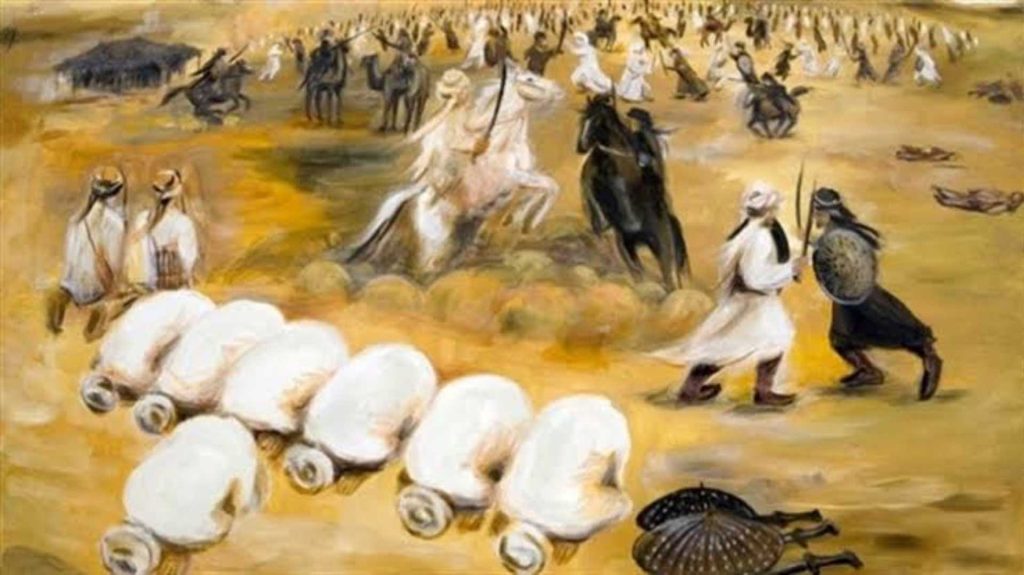
When we look at the Battle of Badr, which was the result of another dispute between these two parties, it is possible to see the principles of reciprocity and justice in the Islamic State in the Islamic Age. The confiscation of the Muslims’ property in Mecca after the Hijra and the looting of their shops and even their homes was seen as the main reason behind the war. Although peace was at the forefront for Prophet Muhammad, the Muslims responded with attacks on Quraysh caravans and various looting activities in accordance with the principle of reciprocity. However, unless there was an attack from the other side, the Muslims did not take a warlike stance.
“Fight in the cause of Allah only against those who wage war against you, but do not exceed the limits. Allah does not like transgressors.”
Al-Baqarah, 190
It is most important to note that even in this verse, which was the main reason for the Battle of Badr for the Muslims, the principle of reciprocity and indirectly justice is emphasized. A more concrete example of this is found in verse 194 of Surat al-Baqarah:
“… all violations will bring about retaliation. So, if anyone attacks you, retaliate in the same manner.”
Al-Baqarah, 194
Due to his goal of developing strategies and establishing dialogue, Prophet Muhammad used many social means, one of which was marriage. (Çelik, 2019) His marriage to Prophet Umm Habibe, the daughter of Abu Sufyan, the leader of Mecca at the time, can be considered as a two-way diplomacy attack. Prophet Muhammad, Najashi[5] Considering the positive dialogue between Abu Sufyan and Abu Sufyan, he wrote a letter to Najashi and offered to mediate a marriage with Abu Sufyan’s daughter. (Çelik, 2019) As a result of this marriage, more positive relations were established with both the Abyssinians and the Meccans.
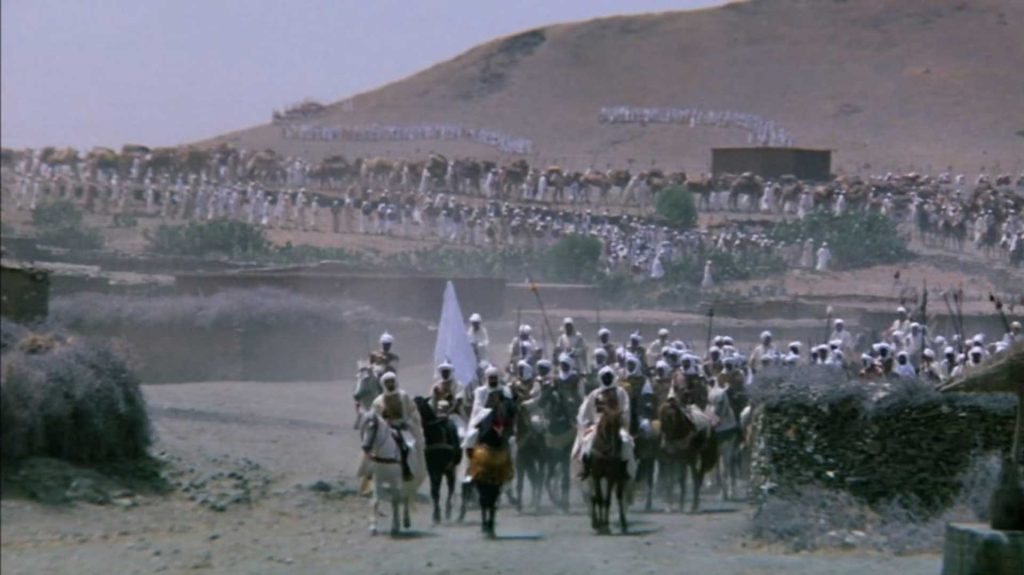
Examples of marriages where diplomatic gains were achieved can be multiplied. However, when we look at the understanding of diplomacy in Asr al-Saadat in general, what is important and should be emphasized is the priority given to the establishment and preservation of peace, dialogue and negotiation. On the other hand, it is necessary to open a separate parenthesis for the adherence of the diplomatic decisions made in this process to the principle of relative virtue accepted by Muslims and their consistency within themselves. On the other hand, when we look at the historical development of Western diplomacy after the Middle Ages under the influence of the French Revolution and secularism, principles such as virtue cannot be seen. This highly pragmatist and rational approach, in which institutional and personal interests are at the forefront, does not paint a very humanist picture. It is a matter of debate to what extent the understanding that every means to an end is permissible is humane for nations and state institutions that are composed of individuals.
I would like to conclude my article by responding to a great misunderstanding. The understanding of jihad in Islam, as misinterpreted by various terrorist organizations today, is not “holy war” in the dictionary sense of the word. Because from an Islamic perspective, war has no sanctity. War is only and only a necessity. As you can appreciate, in the holy book of a religion that considers war to be holy:
“Peace is good”
Nisa, 128
In other words, there is no statement that peace is the best. I wish the whole world, especially our country, a future full of peace and tranquility.
In the sacred memory of my spiritual grandfather and precious namesake…
Omer Valyozoglu
[1] The Era of Happiness is the name given to the period in which the Prophet Muhammad lived.
[2] Arabian peninsula
[3] A person(s) who thinks or acts in accordance with Niccolò Machiavelli, who argued that political thought should be secularized and scientificized.
[4] The 4 great caliphs (Abu Bakr, Umar, Uthman and Ali) who led the Muslim community after the death of the Prophet of Islam
[5] A title used for Abyssinian kings
Source
Sayın, Y. (2010). RELIGION AND INTERNATIONAL RELATIONS: ISLAM’S THEORY OF FOREIGN POLICY . T.C.SELÇUK ÜNİVERSİTESİTĖ SOCIAL BİLİMLER ENSTİTÜSÜ ULUSARASI İŞŞKİLER ANABİLİM DALI ULUSARASI İŞKİLER BÖLÜMÜ, 1-61.
Çelik, N. (2019). The Nature and Main Goal of the Prophet’s (pbuh) Diplomatic Relations. International Journal of Hadith Research, 72-109.
KuranYolu (no date). Holy Quran. kuran.diyanet.gov.tr: Retrieved from https://kuran.diyanet.gov.tr/mushaf/kuran-meal-2/nahl-suresi-16/ayet-119/kuran-yolu-meali-5
Diyanet Foundation (no date). Holy Quran. kuran.diyanet.gov.tr: Retrieved from https://kuran.diyanet.gov.tr/mushaf/kuran-meal-2/tevbe-suresi-9/ayet-1/diyanet-vakfi-meali-4
Ortaylı, İ. (2008). There is no prescription for secularism in Judaism and Islam. In İ. Ortaylı, On the Trail of History (p. 81). Istanbul: Profil Kitap.
Inançer, Ö. T. (2010). Prophet of Love Prophet Muhammad (PBUH). Istanbul, Turkey: Sufi Book.

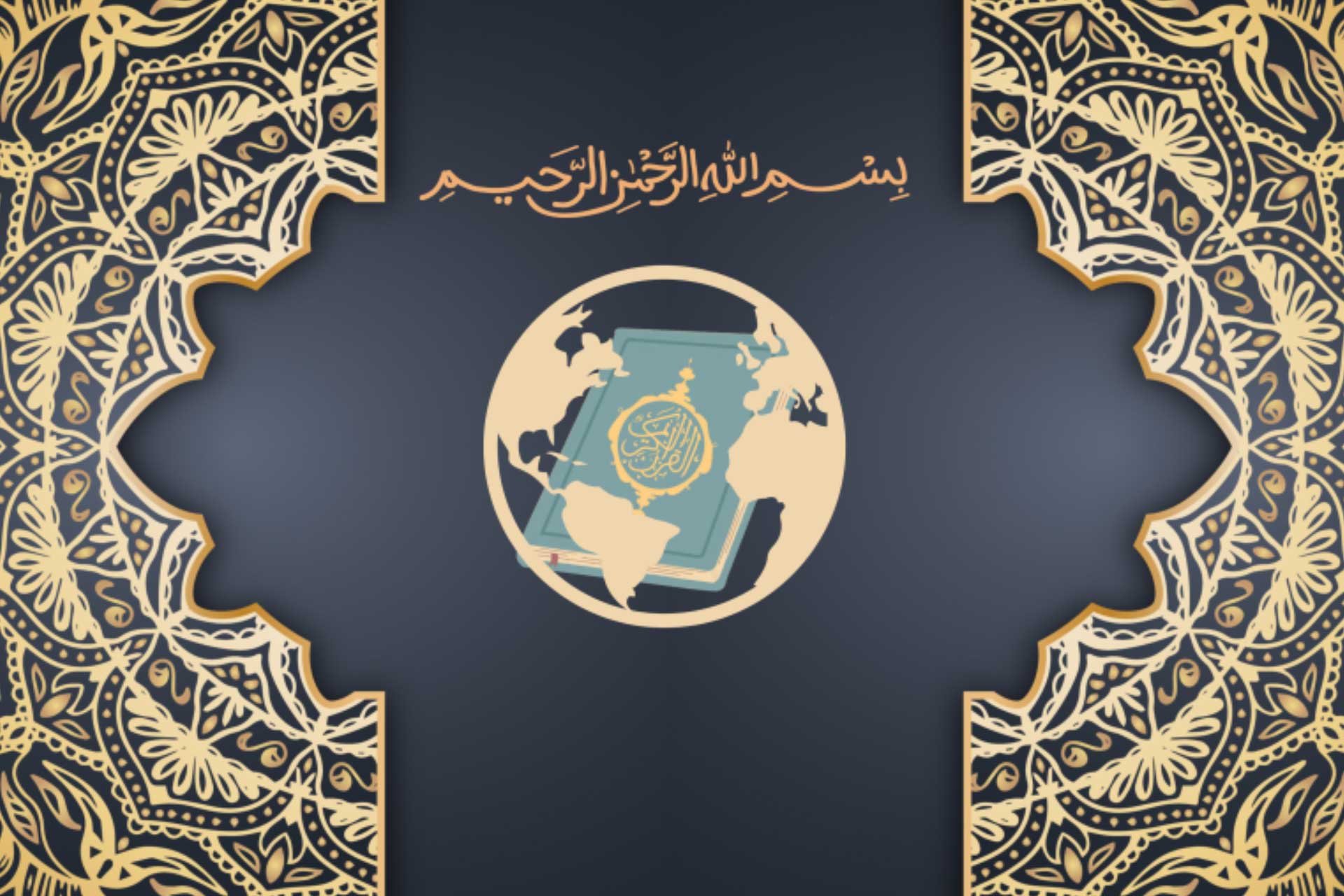

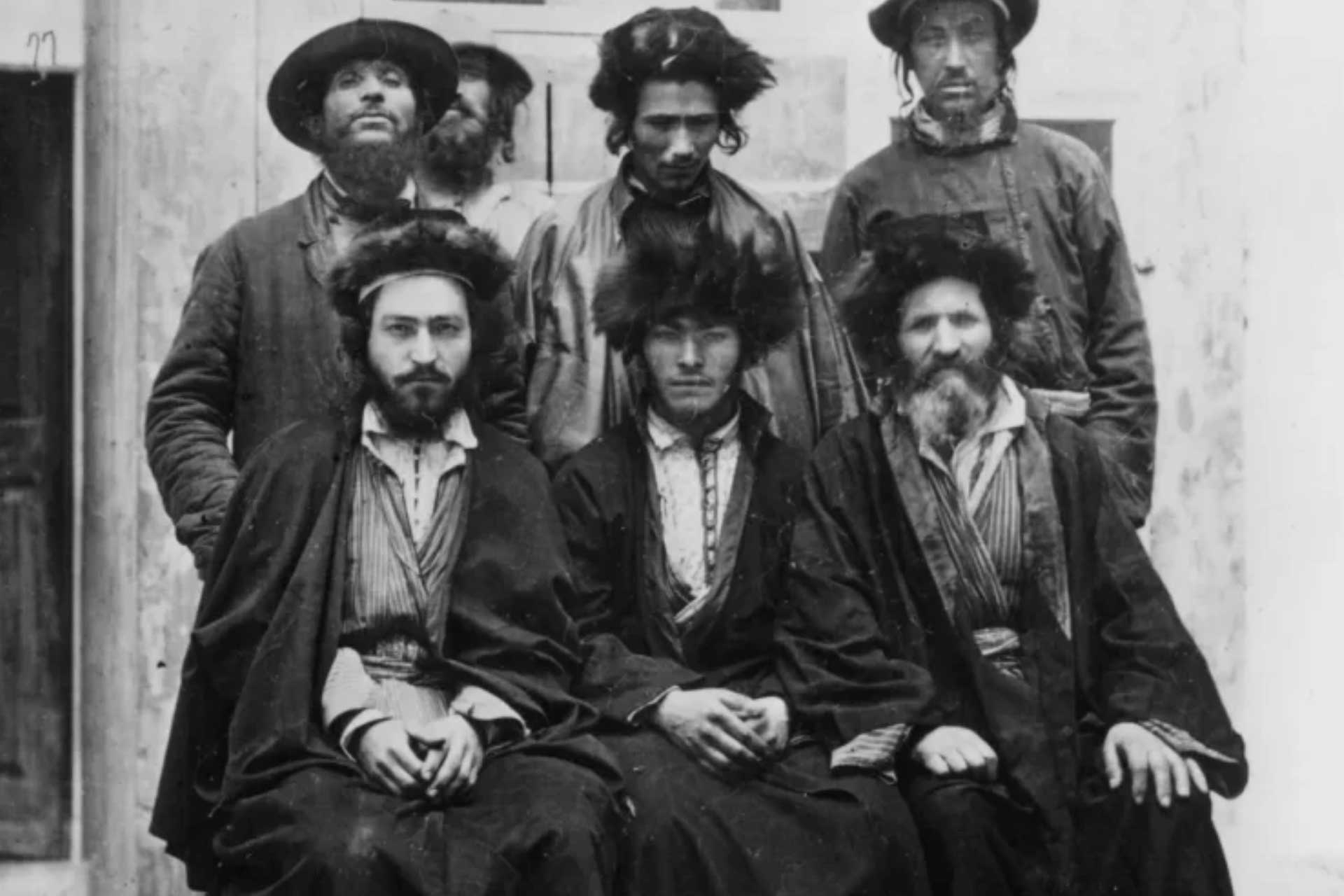
Comments